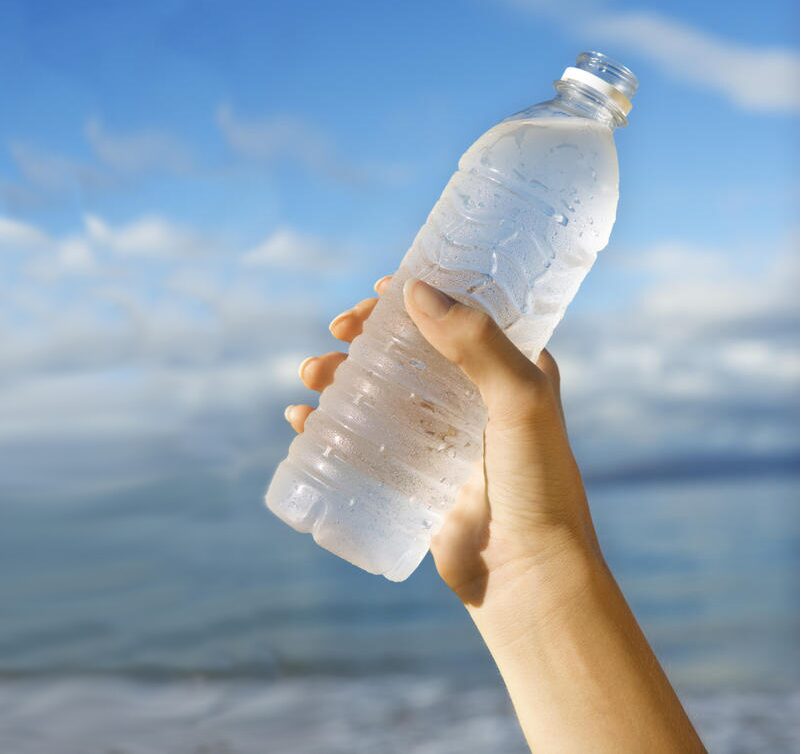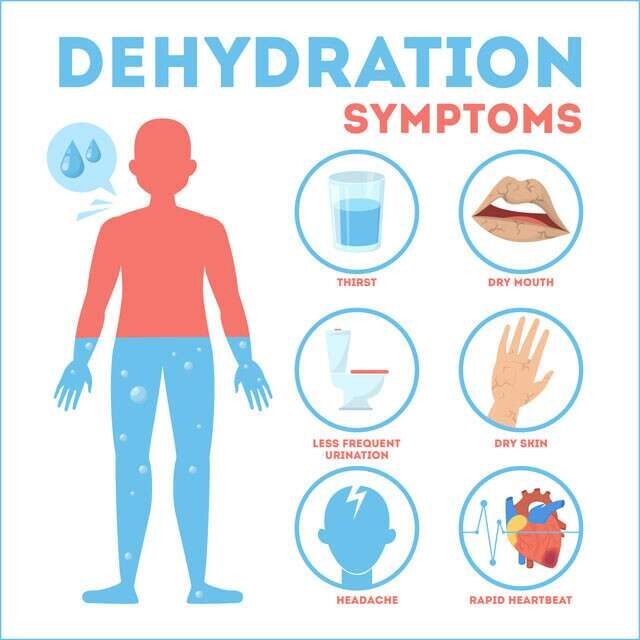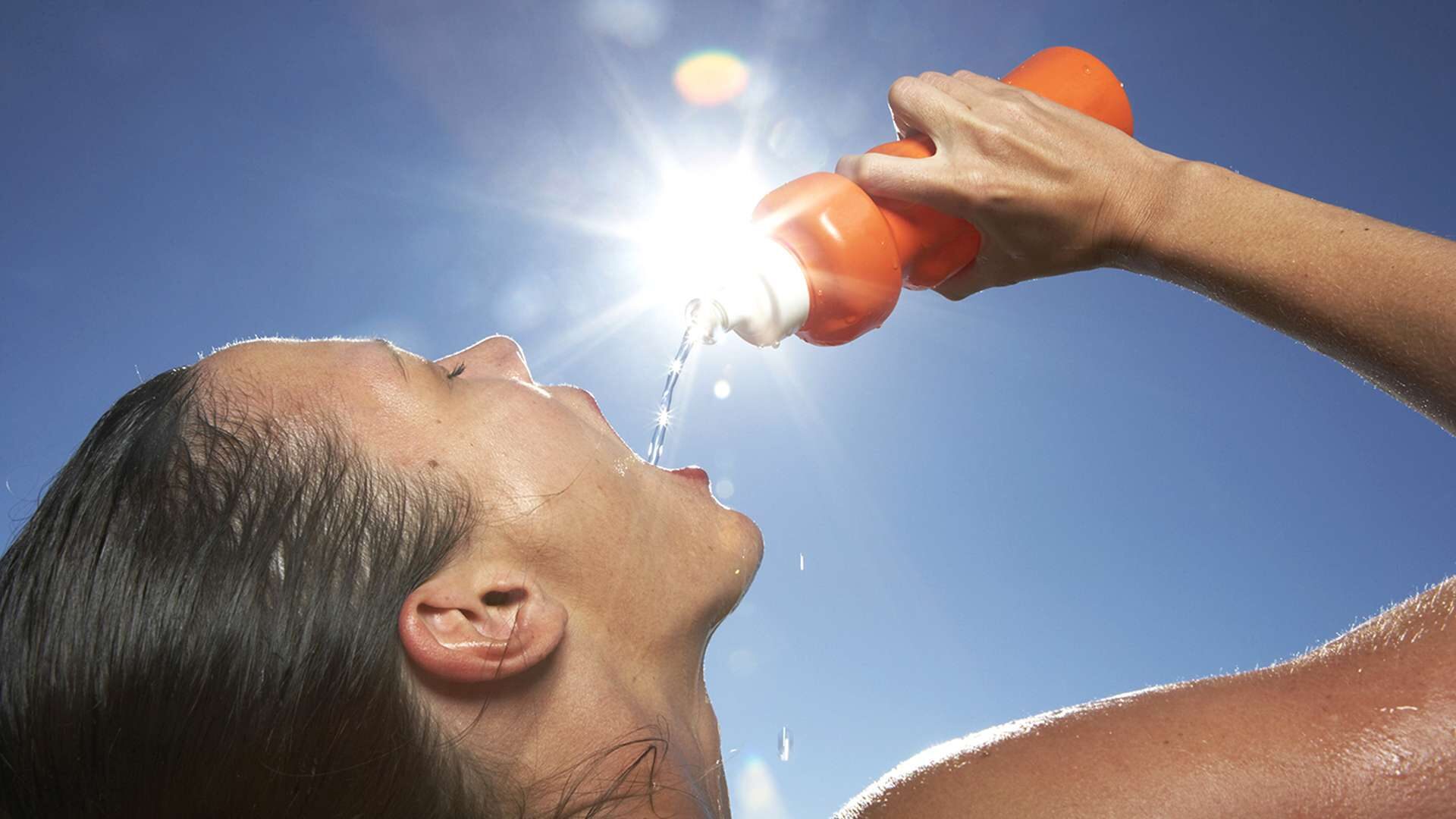Imagine your body as a finely tuned machine. Water is the essential fuel that keeps it running smoothly. But what happens when the tank runs low? Dehydration, a state of insufficient fluids in the body, can throw a wrench into your well-being, causing a cascade of unpleasant symptoms.
The good news? Dehydration is usually preventable and treatable. The key lies in recognizing the warning signs your body sends out. So, ditch the sugary sodas and keep an eye out for these telltale signs you need to rehydrate!
Why Dehydration Matters

Water makes up a significant chunk of our body weight (around 60% for adults!). It plays a vital role in virtually every bodily function, from regulating temperature to lubricating joints and transporting nutrients. When fluid intake dips below our body’s needs, dehydration sets in.
Even mild dehydration can impact your physical and mental performance. Think of it like a car engine sputtering on fumes – you might feel sluggish, foggy-headed, and irritable. Left unchecked, severe dehydration can lead to serious health complications, like kidney stones or heatstroke.
The Signs of Dehydration

Thirst is a clear indicator that your body needs fluids. But it’s not the only sign! Dehydration can manifest in various ways, some subtle, others more pronounced. Here’s a breakdown of the key signs to watch out for:
The Telltale Signs
- Reduced Urination: Are you visiting the bathroom less frequently? Dark-colored urine is another red flag. Remember, healthy urine should be pale yellow and clear, like lemonade.
- Dry Mouth and Lips: Feeling parched and experiencing dry, cracked lips? These are classic signs that your body is craving fluids.
- Headache and Dizziness: Dehydration can affect blood flow to the brain, leading to headaches, dizziness, and lightheadedness.
- Fatigue and Reduced Concentration: Feeling sluggish, drained, and unable to focus? Dehydration can zap your energy and make concentration difficult.
- Constipation: Water helps move waste through your digestive system. When you’re dehydrated, constipation can become a problem.
- Dry Skin: Dehydrated skin loses its elasticity and becomes dry and rough.
- Muscle Cramps: Electrolyte imbalance caused by dehydration can trigger muscle cramps, especially during exercise.
Dehydration Risk Factors
While anyone can experience dehydration, certain factors make some individuals more susceptible. These include:
- Hot and Humid Weather: Sweating is the body’s natural way to cool down. In hot and humid conditions, increased sweating can lead to rapid fluid loss.
- Strenuous Exercise: Physical activity leads to sweating, so athletes and people who engage in intense workouts need to be extra vigilant about hydration.
- Infants and Children: Their bodies have a higher water content and lose fluids faster. Ensure they stay hydrated, especially during hot weather or illness.
- Older Adults: As we age, the thirst mechanism may become less sensitive, making it easier to become dehydrated.
- Certain Medical Conditions: Diabetes, chronic vomiting, and diarrhea can lead to fluid loss and dehydration.
Staying Hydrated

The good news is that dehydration is easily preventable! Here are some simple strategies to keep your body well-hydrated:
- Carry a Reusable Water Bottle: Having a water bottle with you serves as a constant reminder to sip throughout the day.
- Make it Flavorful: Adding a squeeze of lemon or slices of cucumber to your water can make it more appealing.
- Embrace Fruits and Vegetables: Many fruits and vegetables have high water content. Think watermelon, cucumber, and leafy greens.
- Don’t Forget Electrolytes: During intense workouts or hot weather, electrolyte-rich beverages can help replenish lost minerals.
- Pay Attention to Your Urine: Pale yellow urine is a good indicator of adequate hydration. Darker urine signals it’s time to drink up!
- Listen to Your Body: Thirst is a natural cue, but don’t wait until you’re parched to reach for water. Sipping regularly throughout the day is key.
Conclusion
Water is the lifeblood of our bodies. By recognizing the signs of dehydration and implementing simple hydration strategies, you can keep your body functioning optimally. So, ditch the sugary drinks, grab your reusable water bottle, and make conscious choices to make hydration a priority. Remember, a well-hydrated body is a happy, healthy body, ready to tackle any challenge life throws your way!
You May Also Like….
- To Eat or Not to Eat: What Happens When You Ignore Hunger Cues?
- The Silent Thief: How Sleep Deprivation Wreaks Havoc on Your Body
- The Karma Code: 7 Laws Shaping Your Reality
FAQs
Q1: How much water should I drink daily?
The ideal daily water intake varies based on individual factors like activity level, climate, and overall health. However, a general guideline suggests around 8 glasses (2 liters) of water daily. Pay attention to your urine color and adjust your intake as needed.
Q2: Can I get dehydrated from drinking too much coffee or soda?
Yes, while these beverages contain fluids, they also have diuretic properties, meaning they increase urine output and can lead to dehydration. Water remains the best choice for optimal hydration.
Q3: What are some signs of severe dehydration that require immediate medical attention?
Extreme thirst, rapid heartbeat, confusion, sunken eyes, fainting, or lack of urination for more than 8 hours are all signs of severe dehydration and require immediate medical attention.
Q4: Are there any alternative ways to stay hydrated besides water?
Yes, while water is the best choice, unsweetened herbal teas, coconut water, and certain fruits and vegetables can also contribute to your daily fluid intake.
Q5: What are some tips for keeping children hydrated?
Make water fun and appealing! Use colorful water bottles, add fruit slices, or offer hydrating snacks like watermelon. Encourage regular sips throughout the day, especially during playtime or hot weather.


